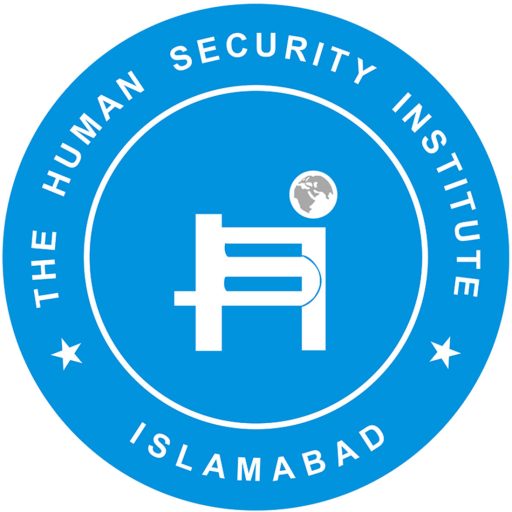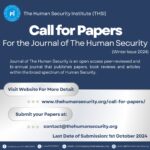By Arooj Hamayon
Introduction
Regardless of northern and southern hemisphere, Global North represents the economic developed and industrialized states which are Northern America and Europe, Israel, Japan, South Korea, Australia, and New Zealand while Global South represents the post-colonial, less developed and less industrialized states which rely on the foreign aids and agendas to run their domestic systems. Global Southern states are Africa, Latin America and the Caribbean, Asia (excluding Israel, Japan, and South Korea), and Oceania (excluding Australia and New Zealand). In general, development means social progress and economic development is progress or advancement in an economy, often measured by indicators like income growth, employment, and industrialization. It refers to advancements in technology, a transition from an economy based largely on agriculture to one based on industry and an improvement in living standards. At societal level, Global Northern states are a sovereign state that has a high quality of life, developed economy, stable political system and advanced technological infrastructure relative to other less industrialized nations. While Global South’s countries are commonly identified as lacking in their standard of living, which includes having lower incomes, high levels of poverty, high population growth rates, inadequate housing, limited educational opportunities, and deficient health systems, among other issues.
Historical Context
This difference of Global North and Global South initiated when colonization started. The colonial era remembered as the era when the colonial powers grew richer and more industrialized at the South’s backbone vis the forced extraction of resources, raw materials, heavy taxing and labor from the global South. During the colonial rule colonial powers imposed their own government system undermining the traditional institutions, suppressed the knowledge and cultural practice of indigenous people, implementing policies that favored certain groups over others and authoritarian government system in which rulers prioritize personal interests. The colonial time societies of colonies polarized into liberalist wing as freedom fighters and conservatives who supported colonial imperialism. On the one hand, freedom fighters and leaders of anti-colonial movements embraced Enlightenment ideas such as constitutional reforms, self-governance, economic self-determination, secular democratic states, individual freedoms, social justice, religious freedom, and equal citizenship. As a result, colonial powers sowed the seeds for democratic institutions and constitutionalism in the authoritarian and conservative societies. Colonization legacy left with a lot of positive and negative consequences but the diffusion of new liberalist ideas into the traditional societies lead the post-colonial states to the social polarization.
In the mid of 19s colonial power left their colonies and most of the new states emerged on world map as independent nations. The social polarization along with the inherited colonial legacy of authoritarianism, resource exploitation, favoring certain classes for own interests lead to bribery, nepotism, and the misuse of public resources in the domestic institutions. This weakened the institutional structure of these post-colonial states which are now termed as Global South. Social disparity continues in the Global South in the form of institutional and domestic corruption. In the modern era, the global structure is now institutionalized by international financial, economic, diplomatic, political, humanitarian, and security cooperation. According to dependency theory, the periphery Global South is dependent on the core Global North for all external and internal policy formulations, the flow of trade, technological advancements, development plan and even state security. For instance, when international financial institutions give aid to a state, they set certain austerity conditions as development plan that the borrowing state must accept as the government may have to reduce its spending, increase taxation, cut health and educational development programs, and eliminate petrol and electricity subsidies to spend it on economic growth. But aid can provide essential resources to help lift communities out of poverty and poor conditions by funding health care, education, and infrastructure projects, which can improve living standards.
Contemporary Global North and Global South
The issue in the Global South states are the people are not provided with the fundamental constitutional rights of living as right of life, education, equality, work, social security, property, freedom of religion, freedom of expression, to participate in the government, protection of home and family. These inequalities resist people from growing and question authoritarians for their rights which create the power vacuum in the society. Then this power imbalance gives leverage to the traditional monopolies to remain in the power and exploit the resources for own good and deprive the common people for their basic rights. This worsens social conditions and leads to people losing trust in the government, accelerating civil turmoil, corruption, and rising criminal activities. This domestic corruption and inequality lead to the cycle of underdevelopment prevailed over the state to the generations. These states often come under debt trap, in this the country falls into the situation where it is unable to pay back the loans so that state to take additional loans even with high interest rates to sustain its economic conditions, leading it to the loop of the increasing debts. Bolivia is a good example of a debt trap; it has been taking loans from International Financial institutes since 1980s but has been unable to repay them and stabilize its economy. This led to a debt trap until the international community intervened, providing debt relief through initiatives like the Heavily Indebted Poor Countries (HIPC) Initiative.
According to Transparency International’s Corruption Perceptions Index (CPI) the majority of the top-ranking corrupt states are located in Africa. If we consider the region of Sudan as the case study, Sudan has long history of military coups in which elites are competing for power struggle. Sudan has suffered the 35 attempts of military coups in which six are successful since its independence. After the vast civilian protests in 2018, triggered by the allocation of two-thirds of the country’s budget to security and sovereignty, leaving only 5% for health, education, and social services, people demanded a democratic government. In 2019, the dictator Omar Al-Bashir was overthrown by the very forces he had appointed for his own security: Sudan’s paramilitary militia Rapid Support Forces (RSF) and the Sudanese Armed Forces (SAF). Then in April 2023 conflict initiated between RSF and SAF for power struggle which resulted in almost 15,000 people have been killed, and more than 8.2 million have been displaced. The UN continues to plead for more support as more than 25 million need humanitarian assistance, and deteriorating food security risks. Currently Sudan is ruling by Transitional Sovereignty Council. According to The United Nations Panel of Experts for Sudan, most of the gold mines in the region of Darfur is under control of RSF. RSF smuggles most of this gold outside of the country to be sold in foreign markets along with this The U.S. Department of Labor lists gold from Sudan as a good produced with child labor. Gold has been connected to forced labor, child labor as well as other labor abuses including poor safety and health conditions, financing of the RSF, smuggling, and human rights concerns in Sudan. This situation Sudan facing is due to the domestic corruption, where the elites competing in the power struggles, leading the country towards human right crises, failed state and resource drainage. There are states like Nigeria, South Africa and Congo along with the other states from Global South like Syria which are suffering from political corruption which hinders the state from development.
Importance of SDG 16 “peace, justice and strong institutions”
Peaceful and inclusive environment can be promoted by good governance which ensures the strong legal system of institutions. Weak and corrupt political institutions lead to the lack of accountability and transparency which promote the inequalities in the society and people lack trust on the government system. High levels of corruption are associated with lower economic growth, increased poverty crime rate, and reduced investment in essential services such as education and healthcare. These disparities led to the civil unrest and make country a failed state. According to “Why Nations Fail” sustainable economic growth is linked to the inclusiveness of a nation’s institutions which ensure broad participation in economic and political processes, create an environment conducive to innovation, investment, and productivity. Achieving SDG 16 by strong institutions also very crucial achieving other SDG’s. More specifically it is linked with SDG’s 1,3,4,5,10,13. Good governance and rule of law from legal, political and economic institutions essential for implementing social welfare system like no poverty (SDG 1), good health wellbeing (SDG 3), quality education (SDG 4). Accountable and inclusive institutions promote gender equality (SDG 5) and reduce inequalities (SDG 10). Strong institutional setting also ensures effective governance in terms of effective formulation, regulation and implementation of climate policies (SDG 13). Inclusive decision-making ensures the voices of climate-affected marginalized communities are heard, while the rule of law enforces the implementation of climate policies and combats corruption in climate finance.
China’s strong Communist party and centralized political system enables it to take decisive and long-term actions under 13th and 14th Five-Year Plans for sustainability and climate mitigation strategies. According to Nationally Determined Contributions (NDC) submitted under the Paris Agreement, China target reducing carbon intensity by over 65% and increasing the share of non-fossil fuels in primary energy consumption to around 25% from 2005 levels by 2030. China established the South-South Climate Cooperation Fund, pledging approximately $3.1 billion to assist developing countries in tackling climate change.
Traditional vs. Non-Traditional Security in the Global North and Global South
If we examine the Global North and Global South, the Global South is still entangled in traditional security issues, while the Global North is more focused on non-traditional security threats. Regions of the Global South, including Africa, the Middle East, and South Asia, face traditional security challenges such as terrorism, civil wars, military standoffs, coups, and armed conflicts. Nearly the entire Middle East is engaged in proxy wars, much of Africa is experiencing civil unrest, and the military standoff over Kashmir has rendered SAARC inactive. While the Global North is more focused on climate change, cybersecurity, pandemics, and transnational crime, it is proposing solutions through initiative like the Migration Pact, the Paris Agreement, the Sustainable Development Goals (SDGs), the Global Health Security Agenda, and the United Nations Environment Program (UNEP).
Path Forward
In the Global North and Global South, Global North led development initiatives like UN SDG’s, The World Bank’s International Development Association (IDA), USAID, The Clean Development Mechanism (CDM), The Global Partnership for Education (GPE), IMF are development models are often formulated and implemented by the Global North without the adequate checks to meet the requirements of the Global South. These initiatives will not be able to fruitful if the fundings and loans are corrupted by the hands of autocrats and corrupt institutions. Development initiatives from the North must work on the SDG 16 to made strong and inclusive institutions of global south which corrupted since colonization rather only providing loans and financial aids which trapping global south debt trap. Institutional development in terms of SDG 16 of strong and inclusive institutions is required for the states of the Global South so that they can build strong institutions and stand independently in the global arena, without relying on foreign aid and funding. On the other hand, Global South lacks structural representation due to which it is unable to drive the developmental project from the South perspective. Consequently, the projects are led by the North who may not fully understand or connect with the needs and demands of Southern communities, exacerbating existing inequalities and under-representation. There is a need for Southern development agencies to collaborate with their Northern counterparts to help close the widening North-South divide. That is how both Global North and Global South collaborate with each other to eradicate human right crises, attain SDG’s, restore damaged ecosystems, establish regenerative economic infrastructures and to restore the Social Contract in the world.
Conclusion
The disparities between the Global North and Global South originated during colonization, where colonial powers exploited resources from the South, undermining indigenous institutions. This legacy has led to significant challenges in the Global South, including a lack of fundamental rights, social inequality, and political corruption. In contemporary era dependency theory led the South’s reliance on the North for policy and economic support, resulting in debt traps, as illustrated by Bolivia’s struggles with international loans. In Sudan, elite power struggles and military coups have created a humanitarian crisis marked by violence and displacement. Development initiatives from the North must work on the SDG 16 to made strong and inclusive institutions of global south. To build strong institutions, the Global South must work towards self-sufficiency and representation in development projects. Collaborative efforts between the North and South are crucial to address human rights issues and achieve sustainable development goals.
About the Author
Arooj Hamayon is an independent writer and geopolitical analyst, focusing on emerging human rights dynamics in the era of non-traditional security threats.



